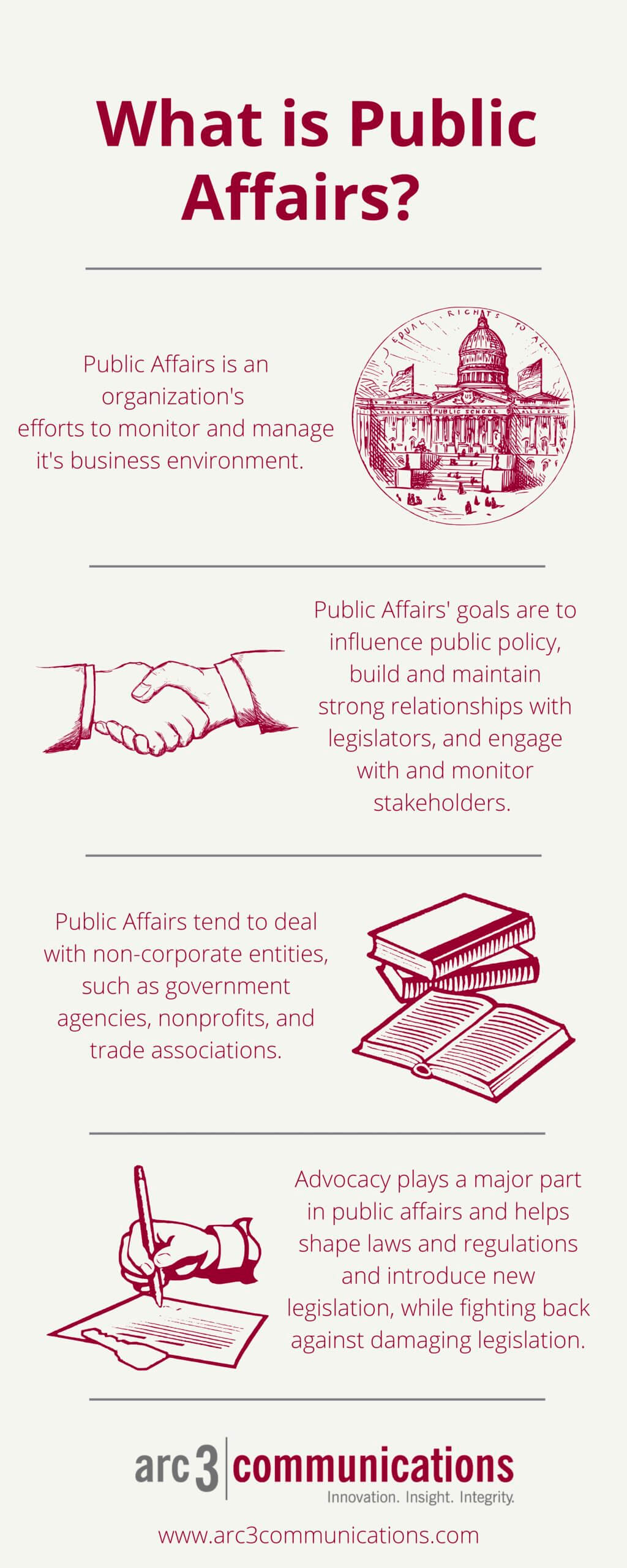
Marietta, Ga. (October 27, 2023) – Arc 3 Communications, a public affairs agency located just off the historic downtown square of Marietta, Ga. celebrates its 12-year business anniversary today. Started by founder and president, Patrick L. Burns, Arc 3 Communications has provided winning content, digital and advocacy services for clients since 2011. For 12 years, Arc 3 has provided quality solutions to trade associations, businesses, non-profits, and government agencies, helping them achieve their organizational goals in a complex media and public affairs landscape.
“I am so grateful to our marquee roster of clients from across the country who have entrusted us to serve their public affairs needs at all levels of government,” said company founder and president, Patrick Burns, “Our team and its commitment to our clients has never been stronger. As our agency continues to grow, I look forward to working with our experienced, energetic and innovative team to achieve results for our clients in the ever changing environment of public affairs”.
For more information about Arc 3 Communications, visit www.arc3communications.com
About Arc 3 Communications
Founded in 2011, Arc 3 Communications is an innovative public affairs agency that specializes in content, digital and advocacy services for clients. Arc 3 provides winning public affairs solutions to businesses, trade associations, non-profits, and government agencies. We produce dynamic content, innovative digital campaigns and effective multi-state legislative advocacy that results in legislative, electoral, and public opinion victories for our clients.
###
 Rising star in public affairs strengthens multi-state advocacy capabilities
Rising star in public affairs strengthens multi-state advocacy capabilities 



 In today’s world, much of the interaction we do with each other is through digital means. From social media to email, blogs to newsletters, many of your association’s marketing efforts are most likely digital. Both communicating with and providing value for your members, while also bringing in new members is achieved through digital marketing efforts. Ensuring your association’s digital efforts are compliant with laws and regulations regarding privacy rights and data is vital to protecting your association’s reputation and also your members.
In today’s world, much of the interaction we do with each other is through digital means. From social media to email, blogs to newsletters, many of your association’s marketing efforts are most likely digital. Both communicating with and providing value for your members, while also bringing in new members is achieved through digital marketing efforts. Ensuring your association’s digital efforts are compliant with laws and regulations regarding privacy rights and data is vital to protecting your association’s reputation and also your members. A big issue in today’s society is that of privacy and data. Who has the right to your data and what do those who get access to your data do with that information? These questions have been at the forefront of everyone’s mind with the rise of social media platforms and Google. Whereas you as an association may not have access to that level of personal data; members do entrust you with sensitive information such as their names, addresses, emails, phone numbers, credit card information, and more. Protecting this data also protects your association’s reputation and will lead to trusting relationships and increased membership.
A big issue in today’s society is that of privacy and data. Who has the right to your data and what do those who get access to your data do with that information? These questions have been at the forefront of everyone’s mind with the rise of social media platforms and Google. Whereas you as an association may not have access to that level of personal data; members do entrust you with sensitive information such as their names, addresses, emails, phone numbers, credit card information, and more. Protecting this data also protects your association’s reputation and will lead to trusting relationships and increased membership. In the recent U.S. Elections, Facebook decided to pull the plug on political advertising. During this moratorium, an issue arose when it came to what constitutes as political advertising and what is in fact simply news. News story posts that mentioned politics or issues were being blocked and placed in the same category as paid political advertising when, in fact, they weren’t. This raised the question “Is Facebook a media outlet that can decide what it wants to support and censor or are they the free platform they claim to be?”
In the recent U.S. Elections, Facebook decided to pull the plug on political advertising. During this moratorium, an issue arose when it came to what constitutes as political advertising and what is in fact simply news. News story posts that mentioned politics or issues were being blocked and placed in the same category as paid political advertising when, in fact, they weren’t. This raised the question “Is Facebook a media outlet that can decide what it wants to support and censor or are they the free platform they claim to be?”